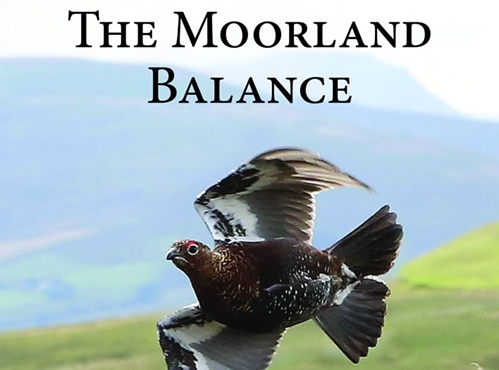THE latest findings from vital grouse research was presented by scientists in the uplands at a sell-out conference last week.
The 11th North of England Grouse Seminar 2018, organised by the Game & Wildlife Conservation Trust (GWCT), gripped guests with its presentations on how grouse moor management is helping wader conservation to post-fire vegetation succession on blanket blog and showed reports from Langholm Moor.
Held at The Morritt Arms, Greta Bridge near Barnard Castle, Dave Newborn, the longest-serving member of the Trust’s Uplands Research Group, set the scene with his extensive research on respiratory cryptosporidiosis in red grouse, presenting results on distribution, prevalence, impacts on survival and productivity as well as potential remedies to parasite problems.
This was followed by organiser Dr Dave Baines, who is Director of Upland Research, stressing the importance of grouse moor management for declining curlew and other wading birds.
Results from a new Trust study on post-burning moorland vegetation succession were compared with those from the long-term rotational burning experiment at Moorhouse Natural Nature Reserve by Dr Sian Whitehead, while Dr Philip Warren’s paper focused on black grouse range expansion.
Additionally, the latest findings from 10 years of the Langholm Moor Demonstration Project were reported by Dr Sonja Ludwig. These showed the changes in numbers of red grouse in relation to grouse moor restoration, including the diversionary feeding of hen harriers.
Apart from GWCT-led talks, Steph Bird-Halton and Amanda Craig, from Natural England, spoke on how working with grouse moor managers can achieve better outcomes, and Professor Rob Marrs, of the University of Liverpool, gave a run-down on the pros and cons of heather burning.
Dr Baines said: “Everyone involved worked hard to ensure the event was a success. We thank the 160 delegates that attended and commiserate with those that couldn’t either because of the snow or because tickets were sold out. We hope everyone took at least one message home that will make their moorland management even more sustainable across multiple outcomes.”
The Marquess of (Nick) Downshire, a trustee of GWCT, who has chaired the Trust’s Upland Research Steering Committee for the past two years, chaired the event.

Buy our essential book for just £8.95
Based on the GWCT's submission to the Westminster debate on grouse shooting in late 2016, this handy paperback book is a go-to guide for those with an interest in the British uplands and is based on years of research and practical experience, both from the Trust and other parties.
Buy now >
Notes to editors
The Game & Wildlife Conservation Trust – providing research-led conservation for a thriving countryside. The GWCT is an independent wildlife conservation charity which has carried out scientific research into Britain’s game and wildlife since the 1930s. We advise farmers and landowners on improving wildlife habitats. We employ more than 60 post-doctoral scientists and other research staff with expertise in areas such as birds, insects, mammals, farming, fish and statistics. We undertake our own research as well as projects funded by contract and grant-aid from government and private bodies.
For information, contact:
Eleanor Williams
Telephone: 07592 025476
Email: press@gwct.org.uk